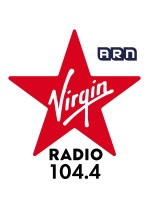
Steve Smith is recovering from the flu when we meet at his Media City headquarters but being ill didn’t stop him from running the Dubai Marathon a few days earlier.
On the contrary, the Australian chief operating officer of the UAE’s biggest commercial radio network is on effervescent form and I wonder what he’s like when in full health.
Then again, Smith has plenty to be exuberant about. Six years after he was appointed to head up Arabian Radio Network (ARN) alongside general manager Mahmood Al Rasheed, ARN has launched three new stations (Radio Shoma 93.4, TAG 91.1, Al Aula – serving the Farsi, Filipino and Emirati communities, respectively); grown its listener figures to 3.2 million per day, and taken effective steps to capitalise on the rise of mobile technology.
It is the latter he is most keen to talk about. “This,” he says, pointing to his smartphone on the table between us, “is not going to be the ab-cruncher of the 1980s. This is here to stay. It has been and will be a game changer in this market, and continue to alter the way we consume media for decades to come.”
It is well publicised that the UAE has one of the highest mobile penetration rates in the world – 252 percent, according to numerous sources including the US Census Bureau and Facebook. “That’s two and a half smartphones per person and in some communities it’s even higher,” Smith says.
His colleague Al Rasheed, for example, has five smartphones in action at any given time – although Smith concedes this is fairly unusual.
Such rapid evolution in digital technology has dramatically changed radio listener habits and is the main driver behind ARN’s recent and planned growth. “The UAE is highly teched up and people like to have the latest devices,” says Smith. Today’s listener is “multi-engaged” across numerous platforms – social media channels including Facebook, LinkedIn and Twitter, as well as TV, radio and internet – and wants non-stop access to high-quality content.
“Thankfully, as a network, we invested heavily back in 2011 and 2012 in staying ahead of the game – and that means ensuring both our content and our interaction with listeners is no longer just about audio.”
ARN invested $1m on mobile development four years ago and is in the third phase of a long-term strategy. A key component of this is creating apps for each station to ensure the listener can engage with live content wherever they are and whatever they are doing. ARN has historically generated interactions between listeners and talk show hosts by encouraging them to text or email song requests or views on a story. But that is not a free service. The cost varies depending on which mobile provider you are with, says Smith, but ARN receives roughly AED1 per text. “In 2013 we received 1.6 million paid texts, so it’s a nice revenue generator. You can imagine my board’s horrified response when I announced, just as the country was coming out of recession, that I wanted to make that interaction free via apps.”
Sure enough, revenue from the paid service has declined by about 30 percent and is likely to drop further as more listeners start using the apps. But in 2014 the network received a total of 14.2 million interactions via its apps, and Smith insists that creating and serving a loyal, mobile community “is what radio is today”, and what will ensure advertising revenue holds up. “In the long term, we value the engagement more than the one dirham because being connected to our listeners as part of their daily lives means we deliver better results for our commercial partners.”
ARN’s advertisers include major brands such as Emirates, du, Samsung and McDonalds, as well as luxury brands like Bentley Motors. Smith refuses to share advertising revenue figures, but says that over the past five years ARN has delivered record results amounting to roughly 20 percent growth year on year. The best-performing stations last year were Hindi-English channel City 101.6, Virgin Radio and Al Arabiya, he says. “This comprehensively tells us the radio medium is growing in the UAE while other media, such as print, are in decline.”
In an interview with Arabian Business in 2010, Smith described Dubai as the “perfect radio market” for two reasons. First, because of its multicultural demographic, which offers the potential for new stations targeting each community, and second, its notoriously bad traffic. “On average, people are commuting for around two hours a day. That’s a good chunk of time when radio has a monopoly on their attention,” Smith said at the time.
He still believes this. “We have an obsession with our cars and we’re in them a lot. Some people drive 500 metres down the road to go to Spinneys and others commute to and from work in heavy traffic. Being entertained in your car is a major part of our strategy.”
However, the growth of non-traditional audio channels, including apps and live streaming via ARN’s websites, is adding new peak listening times to the traditional curve. The new non-traditional peak is 3.20pm, says Smith, and this is in addition to – not instead of – the morning and evening rush-hour spikes. More than one million unique listeners now tune in to ARN’s stations through non-traditional means.
The fourth phase of the app strategy will see technology upgrades for ARN’s stations, which also include Newstalk, Dubai 92, Dubai Eye 103.8, Khaleejiya 100.9 and Hit 96.7. Meanwhile, there is a continued focus on producing high-quality content. “We are gliding into a golden age for radio because mobility enhances great content. But if you don’t have great content and still have to invest in new technology, that’s a big risk.”
The key is providing decent training for presenters and content creators and constantly monitoring the markets you serve, says Smith. “Remember there are 200 different nationalities in the UAE. Before we launched Tag 94.1 we intensely researched the 45,000 Filipinos living here to find out what drives them and what content they are interested in.
“We found out they are an incredibly brand-loyal community and deduced that if we got it right we’d have a very successful station.” Smith predicts it will be one of ARN’s top four best-performing stations within the next 18 months.
However, he is sceptical about using third-party researchers. Instead, ARN has an in-house research department that is “constantly questioning what we think we know”. He also laments the lacks of data to monitor radio listener figures in the UAE, reasoning that the current statistics, provided by Ipsos, are not representative of such a multicultural market. ARN is working with other commercial radio networks across the region to implement a new rating system for the UAE in 2015, but Smith is not allowed to divulge further details at this stage and says only: “Having credible, concise data is an issue in this market, but ARN is keen to rectify that.” The three biggest commercial radio networks in the UAE are Gulf News Broadcasting, Abu Dhabi Media and ARN, and smaller networks exist in each of the four other emirates. Any proposal would have to be rubberstamped by the government.
As part of the state-owned Arab Media Group, does ARN ever face pressure to cover, or avoid, certain subjects? “Anybody working in media in the UAE knows they are in a multicultural environment where there are sensitivities. So we train our staff to be conscious of what our content is portraying.
“But do we get enormous pressure from anybody outside the network over what content comes out? No. They trust that we know what we’re doing and to be honest we’d probably anticipate any potential problems well before they arose. Like all broadcasters we have the seven-second ‘dump button’ to pull inappropriate live content but I can’t recall a time when we’ve had to use it.”
Despite its string of new stations in recent years, Smith says ARN is unlikely to launch any more in the immediate future. “I don’t think the market can take that many more radio stations on the frequencies, it is quite cluttered.” Instead, expansion will come from continuing to invest in new digital technologies to enhance and share content. That said, Smith is excited about having extended ARN’s exclusive syndication agreement with Talksport to broadcast the Barclays Premier League, and the FA Cup for another two years, and sees potential in a sports-dedicated radio channel. “We are always in evolution and that sounds like a pretty good idea. Whether we’re going to do it or not, we’ll have to wait and see.”
Another idea is global syndication of content from ARN’s own channels. “Franchisation is becoming more common in radio. But why can’t we go the other way? We’ve got massive stations here that produce world-class content and will look for opportunities for other stations to use some of our content.” For fitness fanatic Smith, success is clearly nothing if not world domination.











